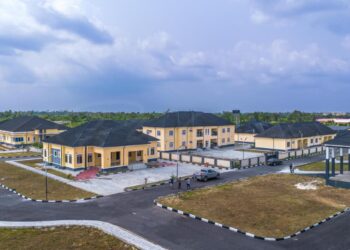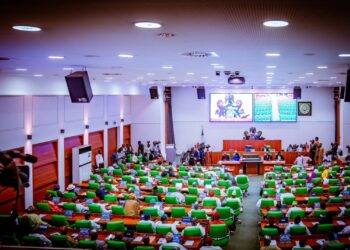16 June 2023
Mixed reactions have greeted the Student Loan Act recently assented to by President Bola Tinubu aid at assisting student with academic fees
The National Treasurer of the Academic Staff Union of Universities (ASUU), Olusiji Sowande, a professor who said the act has the possibility of introducing tuition by the new administration as he clarified that no federal government-owned university currently charges tuition as part of their fees, hinted at the possibility of introducing tuition by the new administration
Mr Sowande, who said his union’s opposition to the Act has not changed, however, noted that if the people welcomed it, ASUU would have no choice but to await the consequences of their action.
“We have continued to maintain our stance that the Act is discriminatory, and that except the government wants to introduce tuition, students in public universities in Nigeria don’t pay tuition but sundry fees,” Mr Sowande said.
Also, the National Vice President of the Senior Staff Association of Nigerian Universities (SSANU), Abdussobur Salaam, said the government only imposed the Act on Nigerians without “due consultations.”
Mr Salaam, a senior staffer at the Federal University of Agriculture, Abeokuta (FUNAAB), Ogun State new Act will impose an additional burden on Nigerians as well as open doors for corruption.

He said the requirements to access the loans, as highlighted in the Act, would make it difficult for Nigerians to benefit and that those who may benefit are also threatened to begin payment two years after graduation.
“We need to review this Act before accepting with open arms. But as far as I am concerned, it is a recipe for disaster,” Mr Salaam said.
However. official Kunle Somoye, former Special Assistant to the immediate past Speaker of the House of Representatives, Femi Gbajabiamila (sponsor of the bill), explained the rationale behind the law.
He said apart from the summit and the public hearing conducted ahead of the passage of the bill; the lawmaker also ensured that fees currently charged by various public tertiary institutions across the country were considered and the average measured before setting the rules.
He said: “We moved round the country and prepared memos on fees obtainable across the country in various schools. We didn’t stop at that; consultations were made. All these efforts were geared towards ending the perennial strikes by workers in our tertiary institutions.
“It is common knowledge that the former speaker and now the Chief of Staff to President Bola Tinubu is a lover of education and has always been at the forefront of any efforts towards ameliorating the pains of students and their parents. So I strongly believe that the law can be improved, but you can agree with me that the intent and purpose behind it are noble.”
Meanwhile, the National Vice President, External Affairs of the National Association of Nigerian Students (NANS), Akinteye Babatunde, and a Social Change Campaigner, Amaka Osita, applauded the bill but opposed the likely increase in tuition fees.
Mr Babatunde, who admitted that the Act would benefit “many students in this country that are struggling because of fees,” noted that the students’ body would not accept any move by the government to increase existing fees in the universities.
He said: “Before it was signed into law, we had always advocated for a student loan programme, and now that the government has established it, we are interested in it, even though we still have some questions.
“The process of implementation is also looking good. We want them committed to making sure it succeeds. We have presented our queries and we are talking with the government to ensure they resolve our concerns.”
The Nigerian government announced Wednesday that the implementation of the student loan will commence in September.
The Act, according to the Nigerian government, is aimed at providing interest-free loans to Nigerians seeking higher education.
But one of the conditions set in the Act limits beneficiaries to children or wards of parents whose annual income is not more than N500,000 (less than $1,000).
Another condition also limits the loan to payment of tuition fees which, as of now, is non-existent across many tertiary institutions owned by the federal government.













